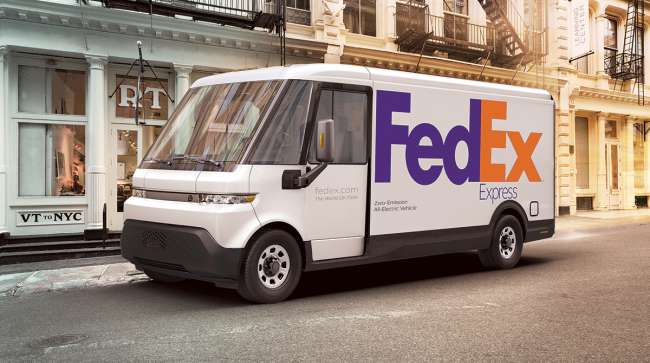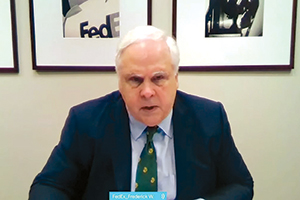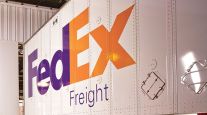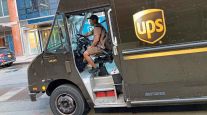Senior Reporter
Electrification Key to FedEx’s Energy Goals, Executive Says

[Stay on top of transportation news: Get TTNews in your inbox.]
With industries considering adopting zero-emission sustainability operations in the coming years, a senior executive at FedEx Express recently outlined the company’s objectives related to electrifying vehicles.
Russell Musgrove, managing director of global vehicles at FedEx Express, said, “We’ve been dabbling in the electrification space for about 10 or 12 years. And for the first time, the economics and the actual technology has come into play. Now we’re at the point where we’re ready to scale.”
Musgrove was speaking at an event on Sept. 15 hosted by The Hill newspaper, a Washington, D.C.-based publication.
“It ties into our 2040 zero-emission carbon neutrality goals. And, at the same time, the technology came so far that we’re ready now to move away from science projects into full-scale execution of a scaled electrification strategy globally,” he continued.

Musgrove
Establishing operations with zero-emission vehicles by 2040 is the target for converting the FedEx Express delivery fleet to carbon-neutral operations, according to the company. Earlier this year, top executives announced a transition guided by benchmarks for purchasing electric vehicles, starting in 2025.
FedEx Corp. ranks No. 2 on the Transport Topics Top 100 list of the largest for-hire carriers in North America.
“One of the keys for us is to continue to work with our utility partners, and other regulatory agencies, to make sure that we in fact can get the energy available to us,” Musgrove said. “At the end of the day, energy independence is a key component to our thinking for many years. It’s kind of what started this journey. The good news is we’re, again, the perfect type of fleet to be able to do that.”
In March, the head of FedEx Corp., CEO Fred Smith, told members of Congress the intent to pursue carbon–neutral operations worldwide by 2040. He explained that FedEx’s objectives include updating its existing vehicles, with electrification playing a key role in that transition.
“Our ambitious agenda at FedEx shows that businesses can and will lead in the effort to create a sustainable future for us all. However, we cannot do this alone,” Smith told the U.S. House Transportation and Infrastructure panel.

Smith testifies virtually before the panel in March. (C-SPAN2)
“Government, industry stakeholders and academia must continue to work together to adopt policies and regulations that help create a performance-based path that will foster and promote innovation in this field, ensuring that the U.S. maintains its status as a global leader in climate change policy, while also stimulating economic growth and job development,” he added.
This year, Democrats in the majority in Congress are considering provisions linked to electrification and severe weather infrastructure resilience or climate change. The budget committees plan to advance a multitrillion dollar policy package designed to respond to emissions concerns across transportation networks. Proposed regulations have been a factor for small and large fleet and freight shippers choosing to move toward zero-emission updates of their diesel-powered trucks.
President Joe Biden’s infrastructure agenda, referred to as the “Build Back Better” plan, proposes establishing fleets of electric vehicles with charging stations at freight and commuter corridors. “We have to invest in being more resilient because of the impacts of climate, the climate change that’s occurring today, not next year or not 10 years from now,” the president said recently. “And we have to make the investments that are going to slow our contributions to climate change today, not tomorrow. And here’s the good news: Something that is caused by humans can be solved by humans.”
Want more news? Listen to today's daily briefing below or go here for more info:




